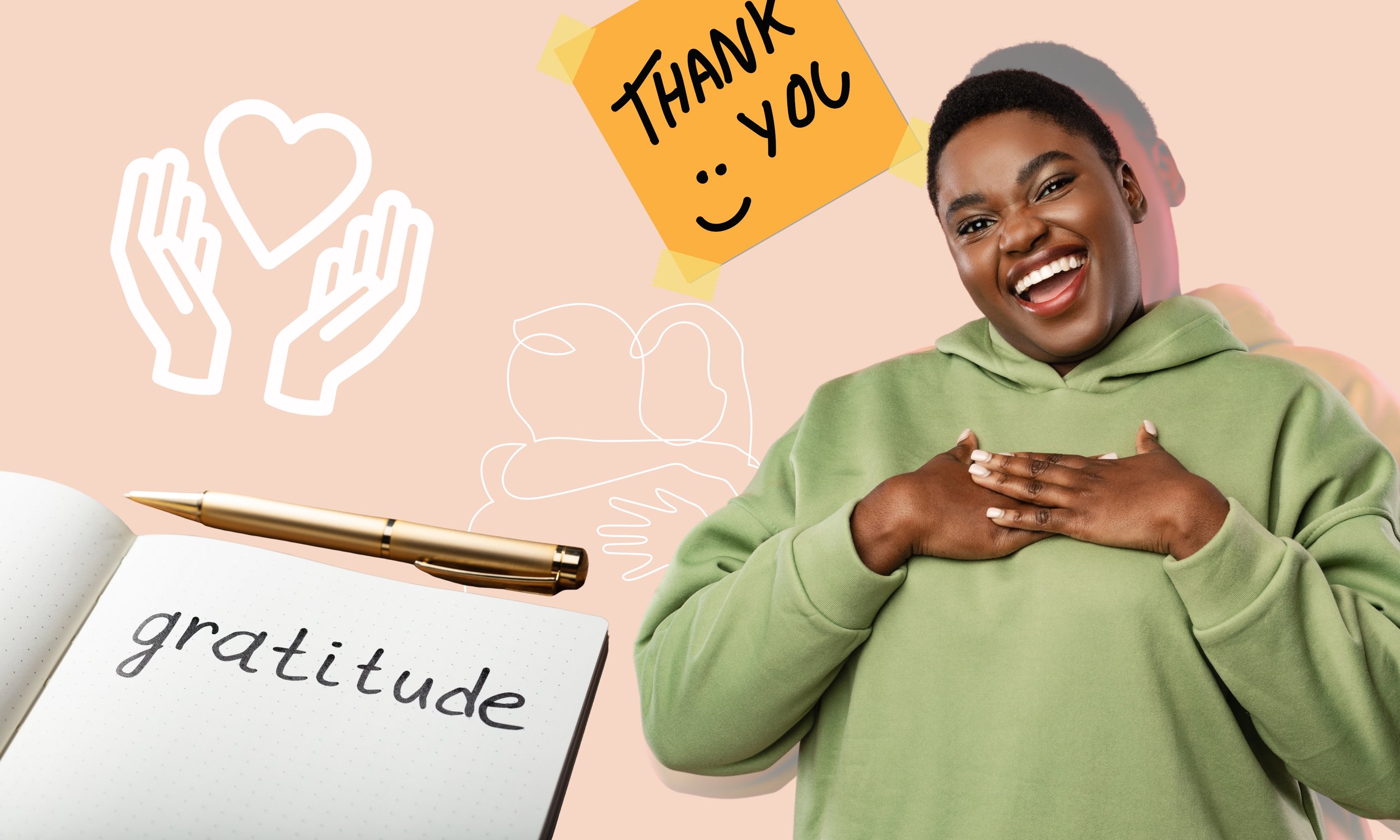Practicing Gratitude: How a Daily Gratitude Habit Transforms Mindset and Relationships
Starting a daily gratitude practice can have powerful effects on both your mindset and your relationships. When you regularly recognize the good things in your life, you train your brain to focus on positivity, which leads to lower stress and higher resilience. But gratitude isn’t just an individual practice—it can also deepen romantic connections, building appreciation and joy with your partner. Here’s how to make gratitude a part of your daily routine and see its impact on your relationship.
Why Gratitude Matters for Your Mindset and Relationships
Gratitude can transform how we see the world and how we engage with those closest to us. Studies show that people who practice gratitude regularly experience improved mood, increased patience, and stronger, more satisfying relationships. When you bring this habit into your romantic life, you’re focusing on the qualities you appreciate about your partner, which naturally nurtures warmth, kindness, and intimacy.
Benefits of Gratitude in Daily Life and Romance
Enhances Emotional Resilience: Gratitude helps you bounce back from challenges, which can be especially helpful in navigating tough moments in relationships.
Reduces Stress: Focusing on the positives lowers stress, helping you remain calm and present with your partner.
Strengthens Connection: When you regularly appreciate your partner’s qualities, you reinforce emotional intimacy and mutual respect.
Starting a Personal Gratitude Practice
A daily gratitude habit doesn’t need to be complicated or time-consuming. It can be as simple as writing down three things you’re grateful for each morning or evening. Try focusing on both small moments (like a cozy coffee break) and bigger achievements (like progress on a personal goal). This helps you find gratitude in all areas of life, including your relationship.
Actionable Tool:
Begin a gratitude journal and commit to listing three things each day that bring you joy, support, or growth. Make it a habit to include one item about your partner, helping you reflect on and appreciate them regularly.
Example Entry:
“Today, I’m grateful for the way my partner listened so patiently when I shared my thoughts. It made me feel truly heard and cared for.”
Sharing Gratitude with Your Partner
Expressing gratitude directly to your partner can have an immediate impact on your connection. Rather than waiting for a special occasion, try telling your partner what you appreciate about them in everyday moments. Sharing specific examples—like how they made you laugh or supported you on a challenging day—helps them feel valued and loved.
Actionable Tool:
Set aside a few minutes each week to share with your partner one thing you’re grateful for about them. Keep it specific to make it feel genuine and personal.
Example Conversation Starter:
“I just wanted to say that I really appreciate how you helped me out the other day. It meant a lot to me, and I feel so lucky to have your support.”
Creating a Couple’s Gratitude Ritual
Taking gratitude beyond individual expression, you and your partner can create a shared ritual around appreciation. This practice reinforces the positives in your relationship and keeps the focus on the qualities you love about each other. Whether it’s a weekly gratitude dinner or a “gratitude jar” where you each drop a note daily, these small acts can build a habit of regular appreciation.
Actionable Tool:
Try starting a “Gratitude Jar” together. Each day, write down something you appreciate about each other and place it in the jar. At the end of the week or month, read the notes together to celebrate your connection.
Example Gratitude Jar Note:
“I loved the way you made time to talk after a busy day. You always make me feel important.”
Using Gratitude to Manage Conflict
Gratitude can be a powerful tool for managing conflict. When disagreements arise, it’s easy to focus on frustrations, but taking a moment to remember what you value about your partner can soften the tension. Acknowledging their positive qualities—even when you’re upset—can bring empathy to the situation and make resolution easier.
Actionable Tool:
Next time you’re in a conflict, pause and remind yourself of two things you’re grateful for about your partner. This shift in mindset can help you approach the discussion with empathy and calm.
Example Practice:
“I know we’re disagreeing, but I’m grateful for how dedicated and caring you are. Let’s work through this together.”
Starting a gratitude habit is one of the simplest, most powerful ways to improve both your mindset and your relationship. When you focus on appreciation, you create more moments of joy and connection, benefiting both you and your partner. Ready to get started? Begin with one small act of gratitude today and watch how it transforms your connection in the days ahead.

